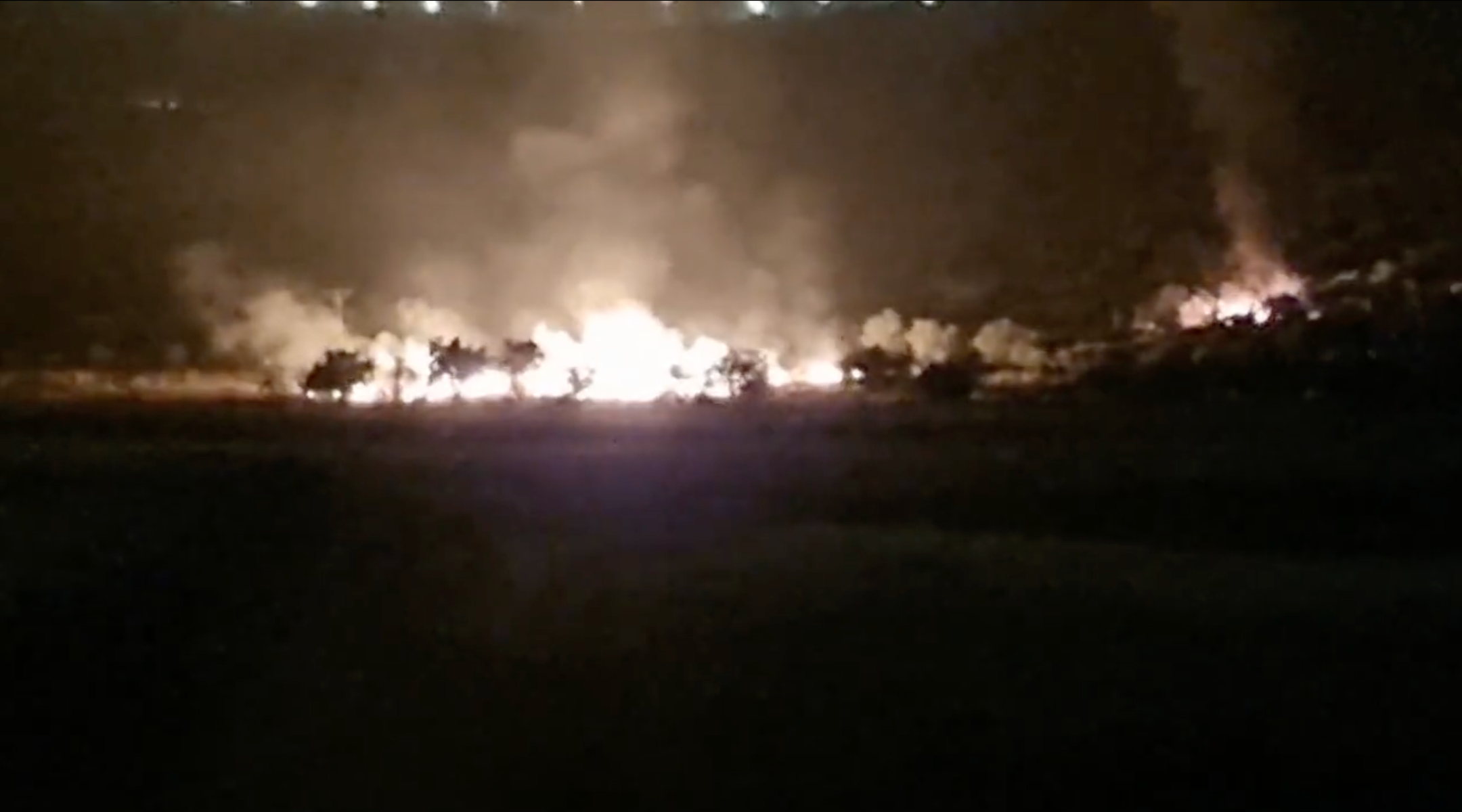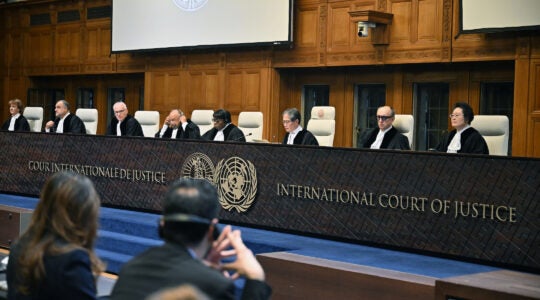This is a developing story
(JTA) — Israeli settlers torched cars and crops in the West Bank following a Palestinian terror attack, the latest conflagration in what has been a violent year in the territory.
The riots beginning Tuesday night, in which one Palestinian has died and dozens have been wounded, followed a shooting earlier on Tuesday by Palestinian gunmen in the Israeli settlement of Eli that killed four people, including two teenagers, and wounded four. That shooting came one day after an Israeli military raid in the Palestinian West Bank city of Jenin that killed six Palestinians, including one teen, and wounded more than 90. Palestinian militants wounded eight Israeli soldiers in the fighting on Monday.
The riots continued on Wednesday following the funerals of the victims of Tuesday’s terror attack. Settlers entered Turmus Ayya, a village close to the Palestinian city of Ramallah, burning and damaging dozens of cars and homes. The Palestinian Authority Health Ministry said one Palestinian man had been killed amid the riots on Wednesday, and 12 were wounded.
The Israel Defense Forces and Prime Minister Benjamin Netanyahu condemned the rioting. The IDF said in a statement that it entered Turmus Ayya to extinguish the fires, collect evidence and prevent further violence. Netanyahu said in a statement that “All citizens of Israel are obligated to obey the law.”
“We will not allow disturbances either on the Golan Heights or in Judea and Samaria,” Netanyahu said, using the biblical name for the West Bank and also referring to a separate instance of unrest near a Druze city in the Golan Heights. “I give full backing to the Israel Police and the security forces in their efforts to maintain law and order. We will not accept any provocations to the police or the security forces in these places or anywhere else.”
The Anti-Defamation League said it also “strongly condemns” the settler riot, saying in a statement, “There’s no excuse for violence. Israeli security forces must go after all those involved and do more to protect Palestinian individuals and property.”
U.S. State Department spokesman Vedant Patel welcomed the Israeli army’s condemnation of the rampage. “We welcome the IDF condemnation of these acts, and expect the Israeli Government to ensure full accountability and legal prosecution for those responsible for these attacks, in addition to compensation for lost homes and property,” he said Wednesday at the daily briefing.
The riot on Tuesday night was a reprise of a similar incident in February, when Israeli settlers rioted in the Palestinian village of Huwara following a terror attack there that killed two Israeli brothers. Following that incident, settler leaders including Bezalel Smotrich, the far-right finance minister, publicly suggested wiping out the village, though Smotrich later said he had been misunderstood.
The Israel Defense Forces feared retaliatory violence on Tuesday night and warned settlers not to “take the law into their own hands,” according to the Israeli publication Ynet. But that admonition appeared not to deter the rioters. As in February, according to reports in Israeli media, they torched at least one store as well as cars and agricultural fields, and threw rocks at Palestinians. The activity took place in multiple villages near Nablus, including Huwara, according to local media reports. Three Israelis were arrested for arson, and an Israeli soldier was seen firing in the air in an attempt to quell the riots.
Since the beginning of the year, more than 100 West Bank Palestinians have been killed in Israeli military raids and more than 20 Israelis have been killed in Palestinian terror attacks.
Violent incidents targeting Palestinians have risen sharply in recent years, according to Israeli government data. After the February riot, which a top military commander joined others in calling a “pogrom,” some settler leaders remained silent or explicitly said they were unapologetic.
JTA has documented Jewish history in real-time for over a century. Keep our journalism strong by joining us in supporting independent, award-winning reporting.






